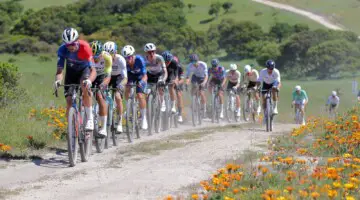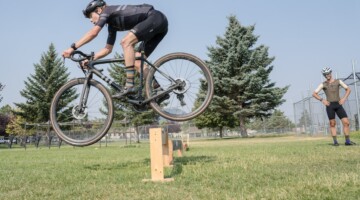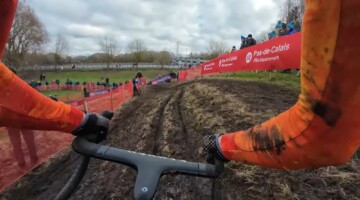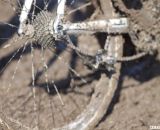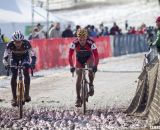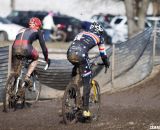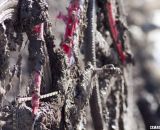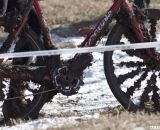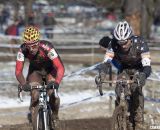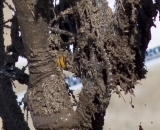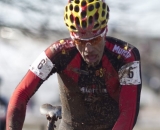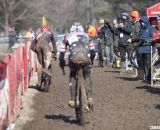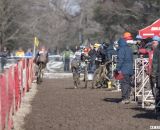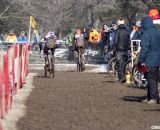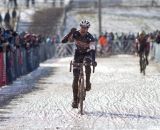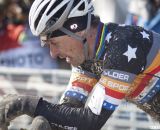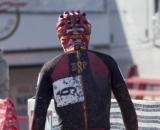On Friday, the final day of the 2013 Masters Cyclocross World Championships in Louisville, Kentucky, one set of the power washers had been moved to the Elite World Championship course at Eva Bandman Park, and the remaining set was left out overnight and would freeze solid and be useless for the day’s championship races.
The lack of power washers had a major role in several races, particularly the Masters 40-44 race won by Mark Savery (Trek Cyclocross Collective). In that race, two main contenders in defending champion Pete Webber (Boulder Cycle Sport) and Spain’s Marco Prieto (MMR Bikes) weren’t able to get clean bikes during pit exchanges, and both eventually suffered broken derailleur hangers due to all the accumulated mud.
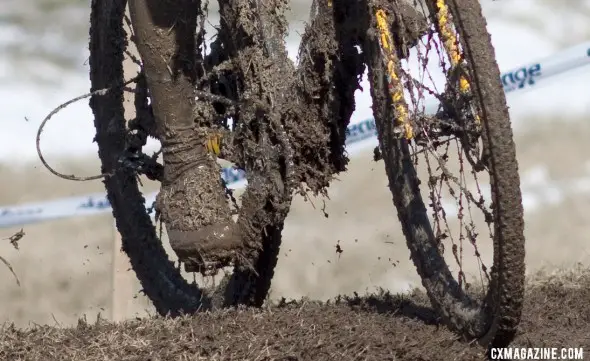
Power washers were needed but missing on the final day of the 2013 Masters Cyclocross World Championships. © Cyclocross Magazine
After the dramatic racing that saw Savery and Michael Yozell (Kapelmuur Independent) pass Webber and Prieto, we caught up with Boulder Cycle Sport pit crew member Dan Horndasch to discuss the power washer troubles of the day. Horndasch not only worked the pits for Pete Webber’s race, but also managed the power washers for WD-40 Bike for both the Masters and Elite races.
Horndasch explained that the power washers were drained Thursday night, but with the freezing temperatures Thursday night, “It was so cold they just froze completely solid,” he said. “You go to pull the cord to start them, and they wouldn’t crank over…the motors were just blocks of ice.”
With only one set of power washers left for the whole day (the power washers by the finish line were moved to the Elite course for practice laps), racers and pit crews had to get creative. Some teams ran to hardware stores to get portable garden sprayers to fill with hot water, while others did whatever they could with existing materials and tools to try to get bikes working.
“We went the old fashioned way,” says Horndasch of his strategy working the pits for the Boulder Cycle Sport crew. “We used hands, brushes, WD-40, de-icer, chain lube, spitting on them, whatever we had to get the stuff off. You clean something, you put the brush in the water, and the thing you just cleaned was frozen over. It’s nasty, easily the worst conditions I’ve encountered anywhere … worst conditions ever.” [See our Mechanical Monday piece on how to best use power washers.]
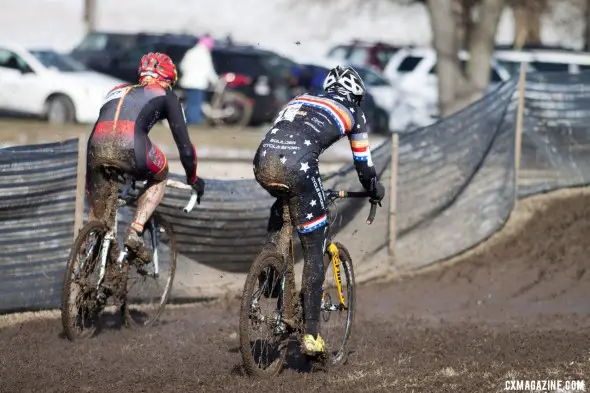
Pete Webber and Marco Pietro of Spain were locked in a battle for the Masters 40-44 title, then suffered broken derailleur hangers on bikes that couldn’t be washed clean. © Cyclocross Magazine
Cyclocross Magazine pressed Horndasch, who has experience working many pits including for the Rapha-Focus team, as to how such problems could be avoided at another high-level event. “We’ve got security at these sites to make sure nothing is tampered with, [so] there’s no reason that the power washers couldn’t have another small E-Z Up [tent] put up, brought inside, with a heater going on outside overnight.”
Horndash was confident the World Championship races on Saturday wouldn’t be impacted by such problems, because of heated tents and more power washers being available. With frozen conditions present for most of Saturday, all but the Elite Men hardly used the pits, with Katie Compton making a rare bike exchange only because of a first-lap mechanical [Video: Mark Legg-Compton discusses Compton’s bike problem].
It was interesting to note that whether a racer was going old school with alloy rims, or new school with disc brakes, they were severely impacted by the conditions and temperatures. In both cases, the water would quickly freeze on metal surfaces, making for terrible braking with either alloy rims or disc brakes. It was a rare situation when carbon rims and cantilever brakes actually provided the best braking. Thankfully for most racers, the mostly flat course and incredibly thick mud offered few areas that required hard braking.
WD-40 Bike’s Dan Horndasch Talks Power Washer Problems:
Masters Men 40-44, Webber and Pietro Bike Battle and Bike Problems Photo Gallery:

